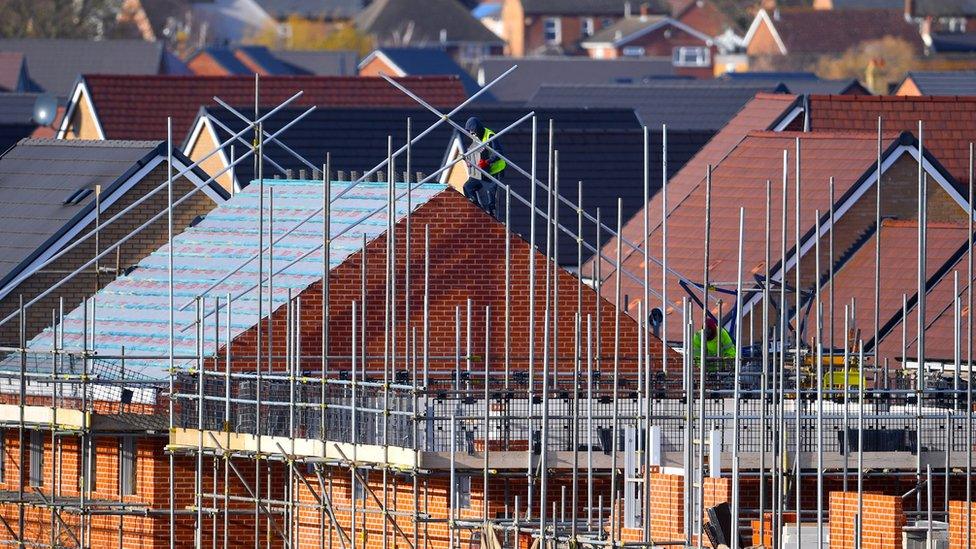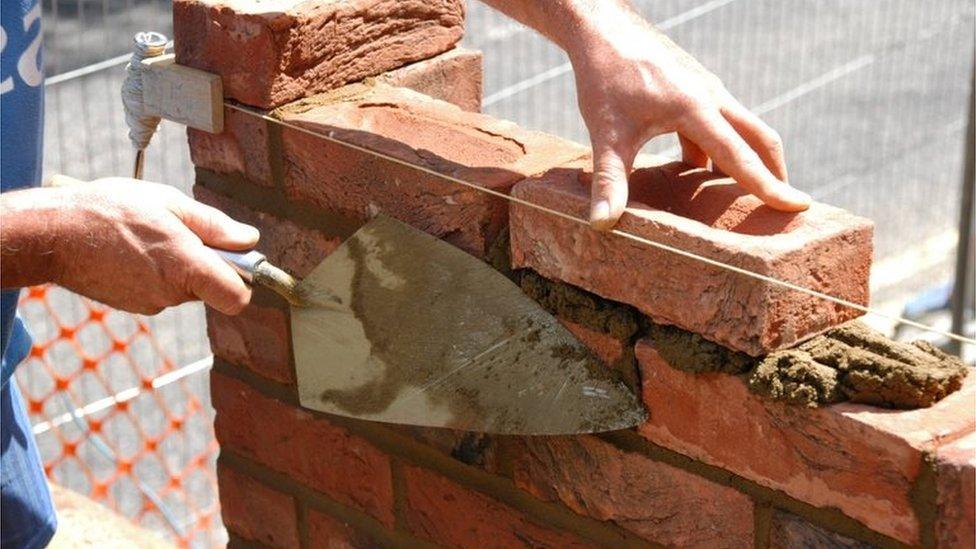Councils warning on plan to relax developer rules
- Published
- comments

Government plans to relax development rules could result in the loss of much-needed homes, council leaders say.
Sites of up to 40 or 50 houses could be temporarily exempted from affordable housing contributions under proposals put forward last month.
The Local Government Association said if the plan had been in place over the last 18 months, it would have led to nearly 10,000 fewer affordable homes.
But ministers say the move will help small firms recover from Covid.
The current rules in England mean developers which have sites with more than 10 houses either have to build or pay towards affordable housing, while those with 10 homes or fewer are exempt from the contribution.
The government is consulting on, external raising this threshold for 18 months to help "minimise the economic pressure" on small developers in the wake of coronavirus.
The proposal - which ministers say could be confirmed this autumn - forms part of sweeping changes to the planning system in England.
The government has acknowledged a higher threshold would lead to a reduction in contributions towards affordable housing via so-called Section 106 agreements.
These deals see developers negotiate with a council to build a certain number of affordable homes, or contribute cash towards them.
But the government argues removing the need for these negotiations to take place will make more sites financially viable for smaller developers.
The LGA, which represents councils in England and Wales, said the plan could lead to a significant reduction in affordable housing.
It commissioned analysis that estimated the proposals would have led to 9,072 fewer affordable homes built on sites of 10 to 49 units in the last 18 months.
Over the the last five years, this figure would have been nearly 30,000, the body warned.
'Game the system'
David Renard, a Conservative councillor and housing spokesman for the LGA, said the government proposal was of "huge concern".
He said it risked allowing developers to "game the system" by putting forward schemes just below the new threshold to avoid building affordable housing.
"With rising housing waiting lists and record numbers in temporary accommodation, we desperately need to be building more affordable housing, not less," he said.
"We need to build homes that are affordable to local people and help to reduce homelessness, rather than contributing additional funds to developers' and landowners' profits."
The Ministry of Housing, Communities and Local Government said a temporary change would help small builders deliver housing more quickly.
A spokesperson added plans to replace Section 106 agreements with a new infrastructure levy would "ensure developers pay their way".
They added that the new national charge - also announced last month - would deliver "at least as much, if not more, onsite affordable housing than today", and that the the £11.5bn Affordable Homes Programme "will deliver up to 180,000 new affordable homes across the country."
- Published30 September 2020
